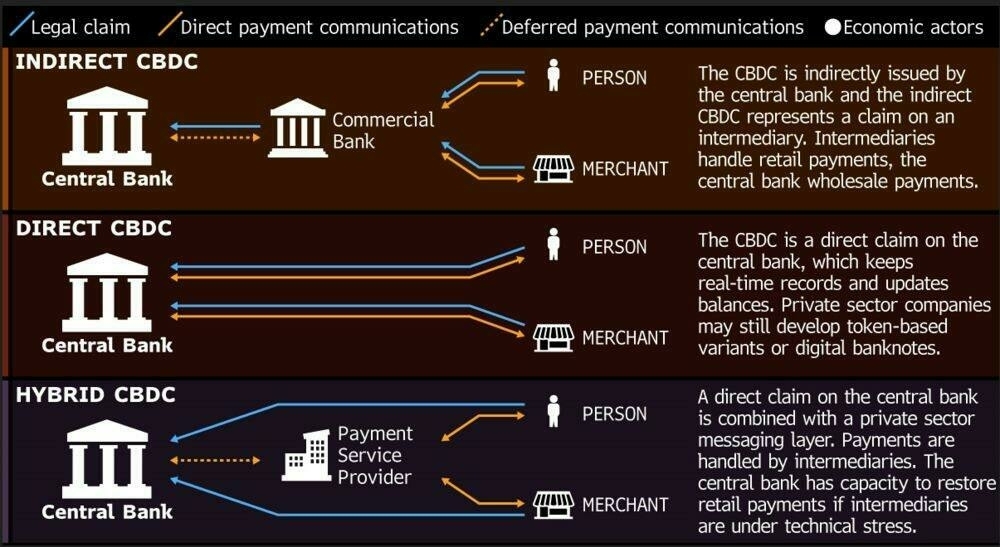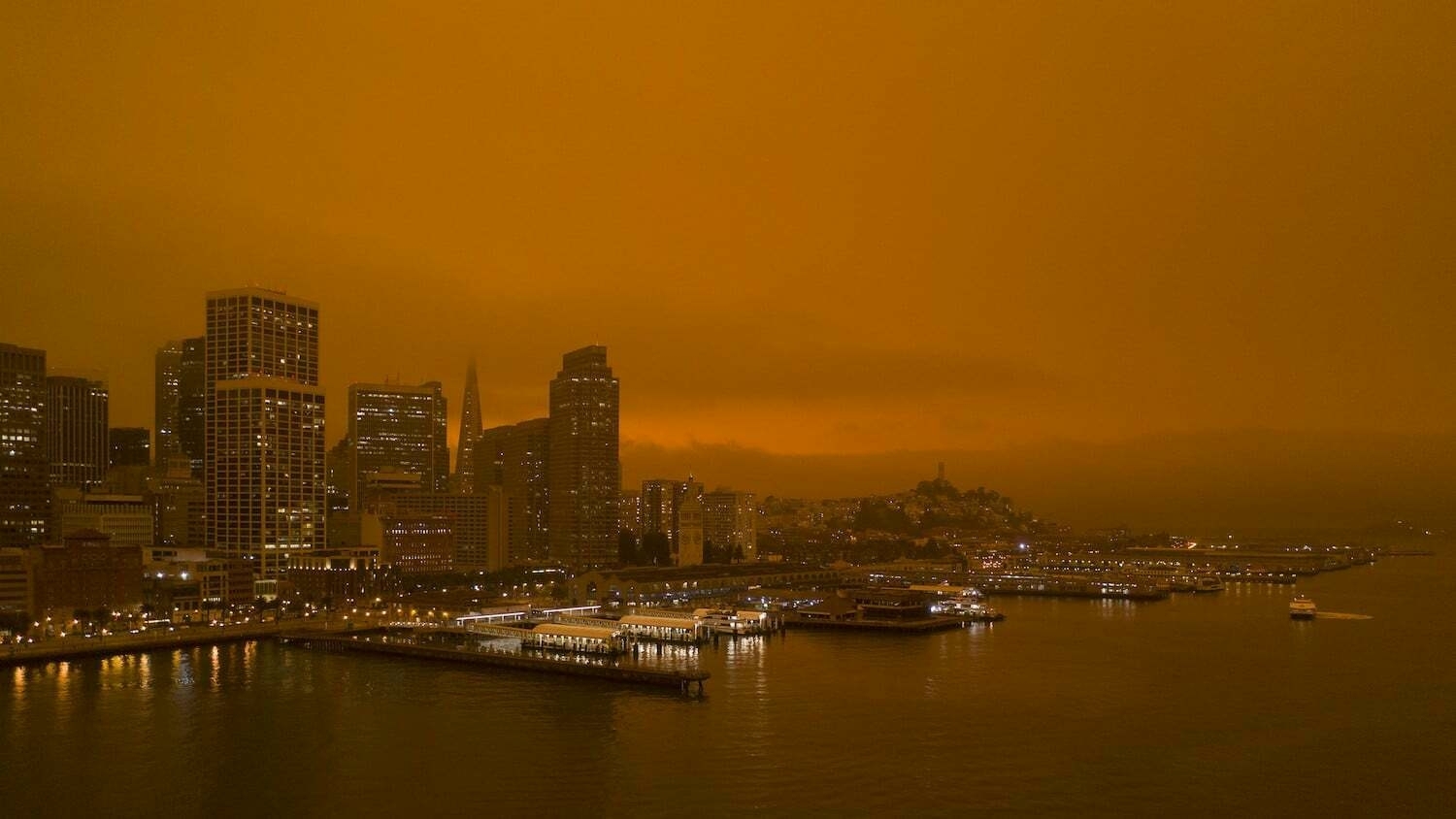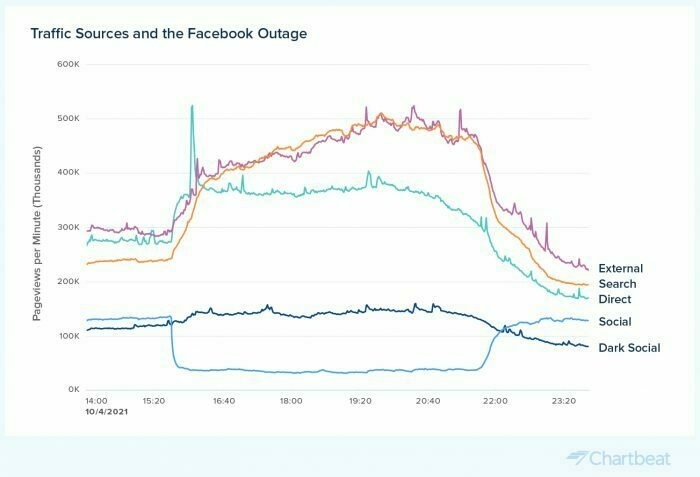- “Blissed” energy comes from what you’re on fire for and can’t stop doing.
- “Blessed” means you’ve been gifted something that you feel compelled to share.
- “Pissed” means you’re pissed off or angry about something.
- “Dissed” means you feel “dissatisfied or disrespected.”
- paying close attention to the feelings and emotions that accompany the decision we’re facing,
- assessing how motivated we are to work toward the success of any given option, and
- recognizing that no matter what option we choose, our efforts to support its success will be more important than the initial guesswork that led to our choice.
On the dangers of CBDCs
I can’t remember the last time I used cash. Or rather, I can (for my son’s haircut) because it was so unusual; it’s been about 18 months since my default wasn’t paying via the Google Pay app on my smartphone.
As a result, and because I also have played around with buying, selling, and holding cryptocurrencies, that a Central Bank Digital Currency (CBDC) would be a benign thing. Sadly, as Edward Snowden explains, they really are not. His latest article is well worth a read in its entirety.
Rather, I will tell you what a CBDC is NOT—it is NOT, as Wikipedia might tell you, a digital dollar. After all, most dollars are already digital, existing not as something folded in your wallet, but as an entry in a bank’s database, faithfully requested and rendered beneath the glass of your phone.Source: Your Money and Your Life - by Edward Snowden - Continuing Ed — with Edward SnowdenNeither is a Central Bank Digital Currency a State-level embrace of cryptocurrency—at least not of cryptocurrency as pretty much everyone in the world who uses it currently understands it.
Instead, a CBDC is something closer to being a perversion of cryptocurrency, or at least of the founding principles and protocols of cryptocurrency—a cryptofascist currency, an evil twin entered into the ledgers on Opposite Day, expressly designed to deny its users the basic ownership of their money and to install the State at the mediating center of every transaction.
Subsidising trains via a tax on internal flights?
My wife flew down to a work meetup (and to see her family) last week. She got the train back. The flight was about £40, and the train about five times that.
At around seven hours, that journey would have been exempt from these plans, but it’s illustrative of how passengers are currently economically encouraged to destroy the environment.
The Campaign for Better Transport (CBT) called on ministers to outlaw internal UK flights if an equivalent train journey took less than five hours and to resist calls for any cut in air passenger duty.Source: Ban UK domestic flights and subsidise rail travel, urges transport charity | The GuardianMandatory emissions labels on tickets and a frequent flyer levy should also be introduced, the charity said.
The demands came before the 27 October budget, in which the chancellor, Rishi Sunak, may decide to cut taxes on domestic flights in response to pressure from the aviation industry, a possibility mooted by the prime minister earlier this year. Such a move could, however, prove an embarrassment a week before the UK hosts the Cop26 climate conference in Glasgow.
[…]
Paul Tuohy, the chief executive of CBT said: “Cheap domestic flights might seem a good deal when you buy them, but they are a climate disaster, generating seven times more harmful greenhouse emissions than the equivalent train journey.
“Making the train cheaper will boost passenger numbers and help reduce emissions from aviation, but any cut to air passenger duty – coupled with a rise in rail fares in January – will send the wrong message about how the government wants people to travel and mean more people choosing to fly.”
Subsidising trains via a tax on internal flights?
My wife flew down to a work meetup (and to see her family) last week. She got the train back. The flight was about £40, and the train about five times that.
At around seven hours, that journey would have been exempt from these plans, but it’s illustrative of how passengers are currently economically encouraged to destroy the environment.
The Campaign for Better Transport (CBT) called on ministers to outlaw internal UK flights if an equivalent train journey took less than five hours and to resist calls for any cut in air passenger duty.Source: Ban UK domestic flights and subsidise rail travel, urges transport charity | The GuardianMandatory emissions labels on tickets and a frequent flyer levy should also be introduced, the charity said.
The demands came before the 27 October budget, in which the chancellor, Rishi Sunak, may decide to cut taxes on domestic flights in response to pressure from the aviation industry, a possibility mooted by the prime minister earlier this year. Such a move could, however, prove an embarrassment a week before the UK hosts the Cop26 climate conference in Glasgow.
[…]
Paul Tuohy, the chief executive of CBT said: “Cheap domestic flights might seem a good deal when you buy them, but they are a climate disaster, generating seven times more harmful greenhouse emissions than the equivalent train journey.
“Making the train cheaper will boost passenger numbers and help reduce emissions from aviation, but any cut to air passenger duty – coupled with a rise in rail fares in January – will send the wrong message about how the government wants people to travel and mean more people choosing to fly.”
Opting out of capitalism
One of the huge benefits of the pandemic has been that it’s allowed people to reflect on their lives. And many people, it seems, realised that their jobs (or work in general) makes them unhappy.
The lying flat movement, or tangping as it’s known in Mandarin, is just one expression of this global unraveling. Another is the current worker shortage in the United States. As of June, there were more than 10 million job openings in the United States, according to the most recent figures from the Labor Department — the highest number since the government began tracking the data two decades ago. While conservatives blame juiced-up pandemic unemployment benefits, liberals counter that people do want to work, just not for the paltry wages they were making before the pandemic.Source: Lying Flat': Tired Workers Are Opting Out of Careers and Capitalism | The New York TimesBoth might be true. But if low wages were all that’s at play, we would expect to see reluctant workers at the bottom of the socioeconomic ladder, and content workers at the top. Instead, there are murmurs of dissent at every rung, including from the inner sanctums of Goldman Sachs, where salaries for investment bankers start at $150,000. According to a leaked internal survey, entry-level analysts at the investment bank report they’re facing “inhumane” conditions, working an average of 98 hours a week, forgoing showers and sleep. “I’ve been through foster care,” said one respondent. “This is arguably worse.”
Blissed, Blessed, Pissed, and Dissed
Austin Kleon summarises Bill O’Hanlon’s idea around there being ‘four energies’ that writers can dig into. They may need translating for a British audience (‘pissed’ means something different over here…) but I like it as an organising idea.
Related: Buster Benson’s ‘Seven Modes (for seven heads)’ from his seminal post Live like a hydra.
The energies are split between “what you love and what upsets you”:Source: The Four Energies | Austin KleonO’Hanlon goes on to say many of his early books were “written from a combination of pissed and blissed.”
The Stability Fantasy
The last time I was in LA, I hired a Dodge Charger and navigated the huge freeways meeting a client and then visiting a friend. I remember going for a fabled In-N-Out burger and seeing the sky turn orange due to Californian wildfires.
I took a photo, ate my burger, and got back in the car. It’s amazing how quickly we normalise quite extreme things in our lives. Since then, my understanding, awareness, and action around the climate emergency has changed dramatically. But that’s taken five years, and we haven’t got time for everyone to come to their own epiphany; the world is on fire.
The great irony of climate change is that, even though it is now occurring at an incomprehensibly rapid pace from a geologic perspective, it is still moving too slowly for humans to understand it as the crisis that it is. Few of us are geologists, and thinking like one is easier said than done.Source: The Stability Fantasy | Orion MagazineI think this is why there haven’t been more successful films about climate change. We love movies about existential threats—mainly aliens—but in those stories individual characters make decisions to deal with the crisis within a couple of weeks. One of the few blockbuster films to deal directly with climate change, The Day After Tomorrow, imagined an Ice Age apocalypse that settles over Earth in a matter of days. Climate scientists rightfully criticized the movie, but I think it says something profound about the climate problem: Unless we unreasonably turn up the speed dial, we are incapable of fitting climate change into the kind of narrative that human beings are used to processing.
And yet, here we are, causing one of the fastest shifts the planet has ever experienced. The sheer pace of change playing out right now is making it harder for us to maintain our myth of a stable planet. The stability fantasy is beginning to crumble.
Singapore is turning into a dystopian surveillance state
Well, this is concerning. Especially given governments' love for authoritarian technologies and copying one another’s surveillance practices.
Singapore has trialled patrol robots that blast warnings at people engaging in “undesirable social behaviour”, adding to an arsenal of surveillance technology in the tightly controlled city-state that is fuelling privacy concerns.Source: ‘Dystopian world’: Singapore patrol robots stoke fears of surveillance state | Singapore | The GuardianFrom vast numbers of CCTV cameras to trials of lampposts kitted out with facial recognition tech, Singapore is seeing an explosion of tools to track its inhabitants.
[…]
The government’s latest surveillance devices are robots on wheels, with seven cameras, that issue warnings to the public and detect “undesirable social behaviour”.
This includes smoking in prohibited areas, improperly parking bicycles, and breaching coronavirus social-distancing rules.
During a recent patrol, one of the “Xavier” robots wove its way through a housing estate and stopped in front of a group of elderly residents watching a chess match.
“Please keep one-metre distancing, please keep to five persons per group,” a robotic voice blared out, as a camera on top of the machine trained its gaze on them.
Good decision-making
Some useful advice from Ed Batista about the difference between ‘good decision-making’ and ‘making the right decision’.
I believe the path to getting unstuck when faced with a daunting, possibly paralyzing decision... involves a fundamental re-orientation of our mindset: Focusing on the choice minimizes the effort that will inevitably be required to make any option succeed and diminishes our sense of agency and ownership. In contrast, focusing on the effort that will be required after our decision not only helps us see the means by which any choice might succeed, it also restores our sense of agency and reminds us that while randomness plays a role in every outcome, our locus of control resides in our day-to-day activities more than in our one-time decisions.Source: Stop Worrying About Making the Right Decision | Ed BatistaSo while I support using available data to rank our options in some rough sense, ultimately we’re best served by avoiding paralysis-by-analysis and moving forward by:
This view is consistent with the work of Stanford professor Baba Shiv, an expert in the neuroscience of decision-making. Shiv notes that in the case of complex decisions, rational analysis will get us closer to a decision but won’t result in a definitive choice because our options involve trading one set of appealing outcomes for another, and the complexity of each scenario makes it impossible to determine in advance which outcome will be optimal.
Carbon offsets are pure greenwashing
Having travelled here, there, and everywhere by air for both personal and professional business over the last decade, it took me too long to realise the scale of the climate emergency.
When I did, I looked into climate offsets, but found that they’re hugely problematic, and often a scam. That’s why I’m not flying any more. It’s good to hear Greenpeace’s Executive Director Jennifer Morgan come out so strongly against them, and put pressure back on the fossil fuel industry.
Carbon offsets are allowing the world's biggest polluters to forge ahead with business plans that are threatening global climate goals, the head of Greenpeace International said in an interview.Source: Greenpeace calls for end to carbon offsets | ReutersThe model allows polluting companies to offset their emissions by buying credits from projects that reduce or avoid the release of climate-warming CO2 elsewhere, such as mass tree plantings or solar power farms - which could be worth $50 billion by 2030 according to a task force created to scale up the market.
Environmental advocates such as Greenpeace say this is allowing big emitters like oil majors to put off cutting their own emissions and avoid divesting from hydrocarbons, a primary source of greenhouse gases that cause global warming.
“There’s no time for offsets. We are in a climate emergency and we need phasing out of fossil fuels,” Greenpeace’s Executive Director Jennifer Morgan said at the Reuters Impact conference.
She said one issue with planting trees as offsets was that it takes 20 years for trees to grow and offset emissions happening right now. In the interim wildfires could destroy the chance of reductions."
These offsetting schemes … are pure ‘greenwash’ so that the companies, oil companies, can continue to do what they’ve been doing and make a profit," she said.
Six Causes of Burnout at Work
This is an interesting article from UC Berkley’s Greater Good Magazine based on journalist Jennifer Moss' new book The Burnout Epidemic: The Rise of Chronic Stress and How We Can Fix It. It not only talks about organisational factors, but personality types as well.
1. Workload. Overwork is a main cause of burnout. Working too many hours is responsible for the deaths of millions of people every year, likely because overwork makes people suffer weight loss, body pain, exhaustion, high levels of cortisol, sleep loss, and more.Source: Six Causes of Burnout at Work | Greater Good2. Perceived lack of control. Studies show that autonomy at work is important for well-being, and being micromanaged is particularly de-motivating to employees. Yet many employers fall back on watching their employees’ every move, controlling their work schedule, or punishing them for missteps.
3. Lack of reward or recognition. Paying someone what they are worth is an important way to reward them for their work. But so is communicating to people that their efforts matter.
4. Poor relationships. Having a sense of belonging is necessary for mental health and well-being. This is true at work as much as it is in life. When people feel part of a community, they are more likely to thrive. As a Gallup poll found, having social connections at work is important. “Employees who have best friends at work identify significantly higher levels of healthy stress management, even though they experience the same levels of stress,” the authors write.
5. Lack of fairness. Unfair treatment includes “bias, favoritism, mistreatment by a coworker or supervisor, and unfair compensation and/or corporate policies,” writes Moss. When people are being treated unjustly, they are likely to burn out and need more sick time.
6. Values mismatch. “Hiring someone whose values and goals do not align with the values and goals of the organization’s culture may result in lower job satisfaction and negatively impact mental health,” writes Moss. It’s likely that someone who doesn’t share in the organization’s mission will be unhappy and unproductive, too.
Traffic to news sites went up during the Facebook outage.
It’s really problematic that most people get their news via algorithmic news feeds.
On August 3, 2018, Facebook went down for 45 minutes. That’s a little baby outage compared to the one this week, when, on October 4, Facebook, Instagram, and WhatsApp were down for more than five hours. Three years ago, the 45-minute Facebook break was enough to get people to go read news elsewhere, Chartbeat‘s Josh Schwartz wrote for us at the time.Source: When Facebook went down this week, traffic to news sites went up » Nieman Journalism LabSo what happened this time around? For a whopping five-hours-plus, people read news, according to data Chartbeat gave us this week. (And they went to Twitter; Chartbeat saw Twitter traffic up 72%. If Bad Art Friend had been published on the same day as the Facebook outage, Twitter would have literally exploded, presumably.)
Of all lies, art is the least untrue

The world doesn't particularly need my opinions on NFTs ('non-fungible tokens') as there's plenty of opinions to go round in other newsletters, podcasts, and blog posts.
After doing a bunch of reading, though, I think that the main use case for NFTs will be ticket sales. That is to say, when there is a limited supply of something with intrinsic value, and both the original buyer and seller want to ensure authenticity.
The rest is speculation and gambling, as far as I'm concerned, with a side serving of ecological destruction. I'm also a bit concerned about the enforcement of copyright everywhere on the web it might lead to...
Twitter's Dorsey auctions first ever tweet as digital memorabilia — "The post, sent from Dorsey’s account in March of 2006, received offers on Friday that went as high as $88,888.88 within minutes of the Twitter co-founder tweeting a link to the listing on ‘Valuables by Cent’ - a tweets marketplace."
NFTs, explained — “Non-fungible” more or less means that it’s unique and can’t be replaced with something else. For example, a bitcoin is fungible — trade one for another bitcoin, and you’ll have exactly the same thing. A one-of-a-kind trading card, however, is non-fungible. If you traded it for a different card, you’d have something completely different. You gave up a Squirtle, and got a 1909 T206 Honus Wagner, which StadiumTalk calls “the Mona Lisa of baseball cards.” (I’ll take their word for it.)"
NFTs are a dangerous trap — "The more time and passion that creators devote to chasing the NFT, the more time they’ll spend trying to create the appearance of scarcity and hustling people to believe that the tokens will go up in value. They’ll become promoters of digital tokens more than they are creators. Because that’s the only reason that someone is likely to buy one–like a stock, they hope it will go up in value. Unlike some stocks, it doesn’t pay dividends or come with any other rights. And unlike actual works of art, NFTs aren’t usually aesthetically beautiful on their own, they simply represent something that is."
Cryptodamages: Monetary value estimates of the air pollution and human health impacts of cryptocurrency mining — "Results indicate that in 2018, each $1 of Bitcoin value created was responsible for $0.49 in health and climate damages in the US and $0.37 in China. The similar value in China relative to the US occurs despite the extremely large disparity between the value of a statistical life estimate for the US relative to that of China. Further, with each cryptocurrency, the rising electricity requirements to produce a single coin can lead to an almost inevitable cliff of negative net social benefits, absent perpetual price increases."
HERE IS THE ARTICLE YOU CAN SEND TO PEOPLE WHEN THEY SAY “BUT THE ENVIRONMENTAL ISSUES WITH CRYPTOART WILL BE SOLVED SOON, RIGHT?” — "Much like the world of blue chip, some NFTs may be bought and sold simply as artworks, intended for personal collections and acquired for aesthetic, conceptual, or personal reasons. However, every single one is made from the outset to be liquidated- an asset first, artwork second. They are images attached to dollar figures, not the other way around."
Quotation-as-title by Gustave Flaubert. Image of Nyan Cat, a 2011 meme, which sold as an NFT for ~$600,000 recently.
One should always be a little improbable

🍲 Introducing ‘Food Grammar,’ the Unspoken Rules of Every Cuisine — "Grammars can even impose what is considered a food and what isn’t: Horse and rabbit are food for the French but not for the English; insects are food in Mexico but not in Spain. Moreover, just as “Hey, man!” is a friendly greeting for a buddy but maybe not for your boss, foods may not be suitable in all grammatical contexts. “A Frenchman would think it odd to drink white coffee with dinner and an Italian probably would resent being served spaghetti for breakfast,” writes Claude Fischler in “Food, Self and Identity.” By the same token, rice is appropriate for breakfast in Korea but not in Ireland."
The essence of this article is that food is a reflection of culture, and our views of other cultures can become ossified. A good read.
🌍 Scientists begin building highly accurate digital twin of our planet — "The digital twin of the Earth is intended to be an information system that develops and tests scenarios that show more sustainable development and thus better inform policies. "If you are planning a two-metre high dike in The Netherlands, for example, I can run through the data in my digital twin and check whether the dike will in all likelihood still protect against expected extreme events in 2050," says Peter Bauer, deputy director for Research at the European Centre for Medium-Range Weather Forecasts (ECMWF) and co-initiator of Destination Earth. The digital twin will also be used for strategic planning of fresh water and food supplies or wind farms and solar plants."
This is the kind of thing that simultaneously fills me with hope and fear. On the one hand, such a great idea; on the other, if we get the model wrong, it could make things worse...
🤑 Why an Animated Flying Cat With a Pop-Tart Body Sold for Almost $600,000 — "The sale was a new high point in a fast-growing market for ownership rights to digital art, ephemera and media called NFTs, or “nonfungible tokens.” The buyers are usually not acquiring copyrights, trademarks or even the sole ownership of whatever it is they purchase. They’re buying bragging rights and the knowledge that their copy is the “authentic” one."
I've got a blog post percolating in my mind at the moment about digital reserve currencies, NFTs and deepfakes. There's something here about an emerging hyper-capitalist dystopia, for sure.
Quotation-as-title by Oscar Wilde. Image by Tu Tram Pham.
Criticism, like lightning, strikes the highest peaks


🙏 Blogging as a forgiving medium — "The ability to “move it around for a long time” is what I’m looking for in a writing medium — I want words and images to be movable, I want to switch them out, copy and cut and paste them, let them mutate. "
I love the few minutes after I press publish on a post, which feels like a race against time between me and the first readers of it. Who will spot the typos and grammatical errors first?
📝 Open working blog and weeknotes templates — "We wrote a guide on how to write weeknotes for Catalyst projects. It is based on Sam Villis’ guide and the templates here are based on Sam’s guide too."
This is useful, especially if you're not blogging yet (or haven't for a while!)
⌚ How to be more productive without forcing yourself — "Basically, if you’re addicted to any of the high-dopamine, low-effort activity, please quit it. At least temporarily so you can reestablish a healthy relationship to work. The more experienced we’re about the topic, the more obvious this is. There is no other way than to temporarily quit the addiction."
I like the practical advice in this article. Too many people do stuff that's too low-value, thus squandering their talent and ability to take on more important stuff.
🤔 Objective or Biased — "This type of analysis software is not widely used in recruiting in Germany and Europe right now. However, large companies are definitely interested in the technology, as we learn during off-the-record conversations. What seems to be attractive: A shorter application process which can save a lot of resources and money."
This is kind of laughable and serious at the same time. I've felt the pain of hiring but, as this research shows, automating the hard parts doesn't lead to awesome results.
📱 Contact-tracing apps were the biggest tech failure of the COVID-19 pandemic — "The system itself, on a technical level, is the root of the problem. In an effort to provide something that could be used universally, while also protecting users’ privacy, Google and Apple came up with a system that was doomed to be useless."
My concern here is that the fault for the failure will be placed at the door of privacy activists.
Quotation-as-title by Baltasar Gracián. Images by Vera Shimunia, Russian textile artist via #WOMENSART
Unless one is a genius, it is best to aim at being intelligible

👯♀️ Secrets of the VIP Party: Why the 1% Love ‘Ritualised Waste’ — "Post-pandemic, in a broader sense, you glimpsed an immediate reckoning and disgust with ostentatious displays of wealth in the context of COVID-19. We saw some instances where people would make statements like ‘we’re all in this together’, while broadcasting from their luxury yacht or private island, followed by a backlash. I think they’ve quickly learned not to do that since…"
This is an incredible read: an interview with a former model turned sociology professor.
💳 Germany To Let Citizens Store ID Cards On Smartphone — "The Interior Ministry said Wednesday that from this fall, citizens will be able to use the electronic ID stored in their smartphones together with a PIN number to prove they are who they claim to be when communicating with authorities or private businesses."
It's Germany, so I'm sure they'll do this sensibly, but it's incredible to think how quickly smartphones have become an essential part of our everyday life.
🏛️ 'A very dangerous epoch': historians try to make sense of Covid — "It is not just the Covid pandemic that can make these feel like unusually significant times. Populism, Trump’s rise and (perhaps) fall, Brexit, the Black Lives Matter and #MeToo protests, mass movement of refugees, the increased might of both China and India and many other issues have contributed to a sense of humanity having reached a historic moment, all while the climate crisis rages with ever more urgency."
People always think they're living through unprecedented times. But in our case, we probably are.
🚸 Why there's no such thing as lost learning — "The fact is that we – as a community of politicians, teachers and education experts – decide what any child must know, understand or be able to do at each age, not some natural law of learning. Why should a child know the structure of a cell membrane by the age of 16? I couldn’t know that information at 16 because it had not yet been fully discovered and described. But I learned it at a later stage."
This is a useful post to point people towards, as the author does a great job of pointing out the ridiculousness of putting an arbitrary body of knowledge before the well-being of young people.
👑 Should Elizabeth II be Elizabeth the Last? At least allow Britain a debate — "But none of [these revelations] reflect the real damage the monarchy inflicts on us. It’s not their money nor their abuse of power, but their very existence that ambushes and infantilises the public imagination, making us their subjects in mind and spirit."
My views on privilege hardly need rehearsing here, but suffice to say that one of the main problems with our tiny island is the delusions of grandeur we have through outdated institutions such as the monarchy.
Quotation-as-title by Anthony Hope. Image by Tyler Nix.
It would not be better if things happened to men just as they wish

🕸️ A plan to redesign the internet could make apps that no one controls — "Rewinding the internet is not about nostalgia. The dominance of a few companies, and the ad-tech industry that supports them, has distorted the way we communicate—pulling public discourse into a gravity well of hate speech and misinformation—and upended basic norms of privacy. There are few places online beyond the reach of these tech giants, and few apps or services that thrive outside of their ecosystems."
It is, inevitably, focused on crypto tokens, which provide an economic incentive. If only there was a way to fix things that didn't seem to be driven by making the inventors obscenely rich?
🤯 Can’t Get You Out of My Head review – Adam Curtis's 'emotional history' is dazzling — "Whether you are convinced or not by the working hypothesis, Can’t Get You Out of My Head is a rush. It is vanishingly rare to be confronted by work so dense, so widely searching and ambitious in scope, so intelligent and respectful of the audience’s intelligence, too. It is rare, also, to watch a project over which one person has evidently been given complete creative freedom and control without any sense of self-indulgence creeping in."
Adam Curtis' documentary 'Hypernormalisation' blew my mind, and I'm already enjoying the first of these six hour-long documentaries.
💸 Why Mastercard is bringing crypto onto its network — "We are preparing right now for the future of crypto and payments, announcing that this year Mastercard will start supporting select cryptocurrencies directly on our network. This is a big change that will require a lot of work. We will be very thoughtful about which assets we support based on our principles for digital currencies, which focus on consumer protections and compliance."
Companies like Mastercard haven't got much of a choice here: they have to either get with the program or risk being replaced. Hopefully it will help simplify what is a confusing picture at the moment. I've had problems recently withdrawing money from cryptocurrency exchanges to my bank accounts.
👉 Hovering over decline and clicking accept — "There's so much written about self-care. And much of it starts from a good place but falls apart the moment things get hectic. But this idea of Past You working in service of Future You isn't a one-off. It's not a massage you sneak in one Friday morning. The secret hope that 60 minutes of hot rocks will counteract 12 hours a day hunched over a laptop."
Some good advice in here from the Nightingales, whose book is also worth a read.
👨💻 Praxis and the Indieweb — "If a movement has at its core a significant barrier to entry, then it is always exclusionary. While we’ve already seen that the movement has barriers at ability and personality, it is also true that, as of 2021, there is a significant barrier in terms of monetary resources."
As I said a year ago in this microcast, I have issues with the IndieWeb and why I'm more of a fan of decentralisation through federation.
Quotation-as-title by Heraclitus. Image by Saad Chaudhry.
Taste ripens at the expense of happiness

🧐 Habits, Data, and Things That Go Bump in the Night: Microsoft for Education — "Microsoft’s ubiquity, however, is sometimes mistaken for banality. Because it is everywhere, because we have all used it forever, we assume we can trust it."
I haven't voluntarily used something made by Microsoft (as opposed to acquired by it) for... about 20 years?
⏳ You Can Set Screen-Time Rules That Don’t Ruin Your Kids’ Lives — "Bear in mind that the limits you set need not be a specific number of minutes. Try to think of other, more natural ways of breaking up their activities. Maybe your kids play one game before tackling homework. Also, consider granting them one day per weekend with fewer restrictions on screen-time socializing. Giving them more autonomy over their weekends helps approximate the fun and flexibility of their pre-COVID world, and lets them unwind and hang out more with their friends."
This has been really hard to managed as a parent, and it's easy to think that you're always doing it wrong.
💬 Why do we keep on telling others what to do? — "Usually starting a conversation out with telling people what you feel they are doing wrong is going to make it a negative conversation all in all, and I tend to believe that it's better to follow “the campfire rule”, try to make all people taking part in a conversation end up a bit better off than what they were when they started the conversation, and telling people what to do or what not to are going straight against this."
Post-therapy, I'm much better at focusing on changing myself than trying to change others. I'd recommend therapy, but that might be construed as an implicit instruction...
🙌 Twitter Considers Subscription Fee for Tweetdeck, Unique Content — "To explore potential options outside ad sales, a number of Twitter teams are researching subscription offerings, including one using the code name “Rogue One,” according to people familiar with the effort. At least one idea being considered is related to “tipping,” or the ability for users to pay the people they follow for exclusive content, said the people, who asked not to be named because the discussions are internal. Other possible ways to generate recurring revenue include charging for the use of services like Tweetdeck or advanced user features like “undo send” or profile-customization options."
This is fantastic news. It would destroy Twitter as it currently stands, but that's fine as it's much worse than it was a decade ago.
🔒 Do lockdowns work? — "It's absurd thinking, but the sceptics have finally found an argument that cannot be categorically disproved. Lockdowns have a scientific rational: you can't transmit a virus to people you don't meet. Contrary to what Toby says in his article, they also have historic precedents: during the Spanish Flu, cities such as Philadelphia closed shops, churches, schools, bars and restaurants by law (they also made face masks mandatory). And now we have numerous natural experiments from around the world showing that infection rates fall when lockdowns are introduced."
There will always be idiots who try and use their influence and eloquence to ensure they're heard. Thankfully, there are people like this who can dismantle their arguments brick-by-brick.
Quotation-as-title by Jules Renard. Image. by Elena Mozhvilo.
Continuous eloquence is tedious

🏭 Ukraine plans huge cryptocurrency mining data centers next to nuclear power plants — "Ukraine's Energoatom followed up [the May 2020] deal with another partnership in October. The state enterprise announced an MoU with Dutch mining company Bitfury to operate multiple data centers near its four nuclear power plants, with a total mining consumption of 2GW."
It's already impossible to buy graphics cards, due to their GPUs being perfect for crypto mining. That fact doesn't seem like it's going to be resolved anytime soon.
😔 The unbearable banality of Jeff Bezos — "To put it in Freudian terms, we are talking about the triumph of the consumerist id over the ethical superego. Bezos is a kind of managerial Mephistopheles for our time, who will guarantee you a life of worldly customer ecstasy as long as you avert your eyes from the iniquities being carried out in your name."
I've started buying less stuff from Amazon; even just removing the app from my phone has made them treat me as just another online shop. I also switched a few years ago from a Kindle to a ePub-based e-reader.
📱 The great unbundling — "Covid brought shock and a lot of broken habits to tech, but mostly, it accelerates everything that was already changing. 20 trillion dollars of retail, brands, TV and advertising is being overturned, and software is remaking everything from cars to pharma. Meanwhile, China has more smartphone users than Europe and the USA combined, and India is close behind - technology and innovation will be much more widely spread. For that and lots of other reasons, tech is becoming a regulated industry, but if we step over the slogans, what does that actually mean? Tech is entering its second 50 years."
This is a really interesting presentation (and slide deck). It's been interesting watching Evans build this iteratively over the last few weeks, as he's been sharing his progress on Twitter.
🗯️ The Coup We Are Not Talking About — "In an information civilization, societies are defined by questions of knowledge — how it is distributed, the authority that governs its distribution and the power that protects that authority. Who knows? Who decides who knows? Who decides who decides who knows? Surveillance capitalists now hold the answers to each question, though we never elected them to govern. This is the essence of the epistemic coup. They claim the authority to decide who knows by asserting ownership rights over our personal information and defend that authority with the power to control critical information systems and infrastructures."
Zuboff is an interesting character, and her book on surveillance capitalism is a classic. This might article be a little overblown, but it's still an important subject for discussion.
☀️ Who Built the Egyptian Pyramids? Not Slaves — "So why do so many people think the Egyptian pyramids were built by slaves? The Greek historian Herodotus seems to have been the first to suggest that was the case. Herodotus has sometimes been called the “father of history.” Other times he's been dubbed the “father of lies.” He claimed to have toured Egypt and wrote that the pyramids were built by slaves. But Herodotus actually lived thousands of years after the fact."
It's always good to challenge our assumptions, and, perhaps more importantly, analyse why we came to hold them in the first place.
Quotation-as-title by Blaise Pascal. Image by Victor Forgacs.











